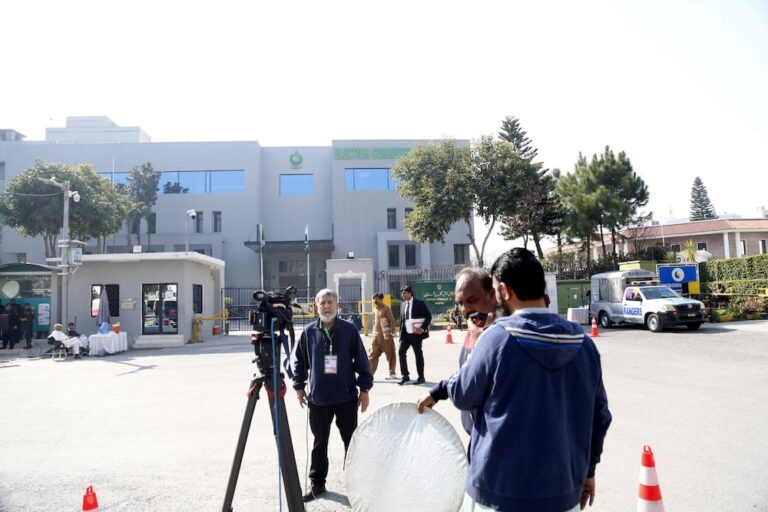Daniel Pearl was a highly experienced journalist who worked at many of the "Wall Street Journal"'s bureaus. He is sadly also remembered for the fact that his murder, which took place while we was on assignment in Pakistan, has never been solved.
On the occasion of the posthumous awarding of IPI’s World Press Freedom Hero award to Daniel Pearl in 2011, his widow Mariane Pearl stated: “Quality journalism is defined by an uncompromising will to pursue the truth, to empower citizens and bring justice to all. By shining a light on those values that honour us as a society, those, like Danny, who practice quality journalism, will never fail to inspire others”
The 2002 kidnapping and murder in Pakistan of the American journalist Daniel Pearl which caused shockwaves around the world, turned out to be a tragic portent of things to come. In subsequent years, extremists in Middle East conflict zones kidnapped other journalists, and many have suffered deaths as brutal as his.
Pearl was a highly experienced journalist, having worked at the Wall Street Journal‘s Atlanta, Washington and London bureaus before moving to Mumbai where he was the newspaper’s Middle East correspondent. He was commended for his scepticism, for example during the 1990s Yugoslav war when he questioned whether the murders of hundreds of Kosovars by Serbian forces could really be classified as genocide. He was one of the first reporters to reveal that in 1998 the U.S. had launched a missile attack on a private pharmaceutical manufacturer, rather than a factory making chemical weapons for al-Qaeda, as the government had claimed. Stories like these gained Pearl admiration from his colleagues who described him as unafraid to challenge accepted truths.
On 23 January 2002, Daniel Pearl, then working as the South Asia Bureau Chief for the Wall Street Journal at its office in Mumbai, set off for Karachi in Pakistan on the trail of the masterminds who had led Richard Reid, a British terrorist known as the “shoe bomber”, in his failed attempt to blow up an airplane in December 2001. An al-Qaeda affiliated group abducted Pearl. After his abduction there was mounting international concern and appeals, which intensified when on 30 January various media organisation received an email containing images of Pearl with a gun to his head. His captors threatened to kill him unless prisoners held in Guantanamo Bay were given better treatment.
On 21 February, Pearl’s captors issued a video confirming that he had been killed by decapitation. Three months later his mutilated body was recovered from a shallow grave.
The Pakistan authorities were swift to apprehend his abductors and, in July 2002, an anti-terror court in Karachi sentenced the ringleader of the kidnapping to death, and three others to 25-year terms. There are, however, suspicions that a larger network was involved.
In 2007, Mariane Pearl filed a lawsuit against al-Qaeda members, a Karachi-based bank, and a charity, for their alleged role in her husband’s murder. Eleven years after the killing, new suspects continued to be arrested, including a militant, in Karachi, in 2013.
The Pearl family established the Daniel Pearl Foundation, to promote “mutual respect and understanding among diverse cultures through journalism, music and dialogue”, a celebration and sharing of Pearl’s own passions. The Foundation provides fellowships bringing journalists from the Middle East and South Asia to the U.S. to work with American newspapers, training programs for young journalists, a lecture program, and a World Music Day project, bringing together musicians from across the globe.
If Daniel Pearl’s killers had intended to strike fear and subdue others, they have instead inspired a force for good. In 2011, the International Press Institute posthumously awarded him its World Press Freedom Hero award.



